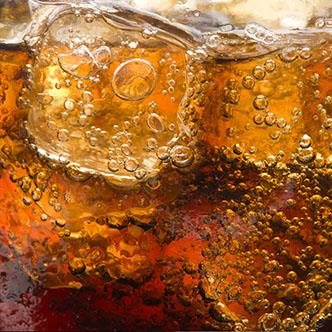
While switching to diet drinks can help cut calories and promote weight loss, experts advise against regular consumption of beverages with artificial sweeteners during childhood. These recommendations were published in a recent scientific advisory from the American Heart Association and reflect a lack of evidence about the long-term safety of artificial sweeteners.
Published in the American Heart Association journal Circulation, this advisory reviewed everything we know about diet beverages and their impact on heart health. It reviewed data on the six artificial sweeteners currently approved by the U.S. Food and Drug Administration: saccharin, aspartame, acesulfame-K, sucralose, neotame and advantame. It also included data on plant extracts from the stevia plant and monk fruit.
These sweeteners are included in nearly all diet or low-calorie beverages. It’s estimated that 19% of drinks consumed by children and 32% of drinks consumed by adults contain artificial sweeteners.
The goal of the recent advisory was to clarify what the known risks and benefits of these sweeteners are, particularly as they relate to weight loss, diabetes and heart disease.
Unfortunately, according to authors, there’s just not enough evidence to say whether regular consumption of artificially sweetened beverages is safe. Some studies have linked regular consumption of diet beverages to increased health risks, such as stroke, diabetes and dementia. Others have found no evidence of increased health risks with diet beverage consumption.
However, findings come from observational studies where it’s difficult to account for factors that influence outcomes, such as body weight and overall health. Studies also rarely track beverage consumption over a long period of time, which is important for assessing long-term outcomes.
Therefore, authors conclude that there’s still not enough evidence to say whether diet beverages are completely safe. Until there is more solid evidence on the issue, they advise against children consuming diet beverages on a regular basis.
At the same time, experts do note that diet beverages can have their benefits for certain individuals. For example, diet beverages may be helpful for children and adults with diabetes, who need to limit sugar intake. Diet drinks can also help temporarily cut calories in individuals trying to lose weight.
However, experts note that water is always the best option for staying hydrated. For individuals trying to replace sugar-sweetened beverages with diet drinks, they should eventually switch to unsweetened drinks like water or flavored seltzer, which are known to be safe.